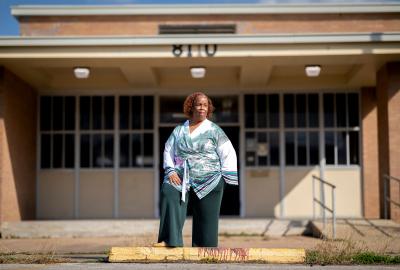Sustainable investing 101: How to build your nest egg while building a better world
Not long ago, if you told your financial adviser that you wanted your investments to have a positive impact, she might have replied that your principles were admirable — but they would cost you.

Today, you’re likely to get a more enthusiastic response. According to Morgan Stanley, sustainable (also called ethical or socially responsible) portfolios beat their traditional counterparts in the first half of 2023, with a median return of 6.9% compared to traditional funds’ 3.8%.
As economies move toward a low-carbon future, the smart money is betting on companies that are prepared to respond to climate change and other urgent issues.
But it’s easy for companies to talk about sustainability. To see through exaggerated claims, a variety of tools are available to help you separate the greenwash from the good stuff.
We can’t recommend specific investments, and nothing in this article should be construed as investment advice, but we can offer ideas to help align your investments with your values.
The companies you keep
To start, take a look at your current portfolio. You may discover that the funds you’ve chosen, often from your retirement plan’s limited offerings, include companies and industries whose values are at odds with your own. Use the online tools on the Invest Your Values site to screen funds against your most important issues. Fossil Free Funds provides a letter grade and carbon footprint metric for each fund. MSCI ESG Fund Ratings goes even deeper, with assessments of carbon intensity, diversity of boards of directors, green vs. brown revenue and more.
Walking the walk
Many sustainability-focused investors compare investments in terms of ESG, which refers to the three central criteria — environmental, social and governance — that focus on sustainability and societal impacts. Rather than directly assessing a company’s impacts, these scores gauge the company’s exposure to environmental, social and governance risks, and its ability to balance financial performance against these risks. Keep in mind that these standards and metrics are unregulated and still evolving, and ratings can overlook important nuances.
Green bond funds
Green bonds are fixed-income investments issued by governments, organizations and companies, to help finance sustainable initiatives such as renewable energy projects, sustainable forestry and clean transportation. Individuals can’t invest in green bonds directly, but you can invest in green bond funds — exchange-traded funds and mutual funds that hold green bonds. Many of these investments also offer tax incentives such as credits and exemptions.
Start a conversation

A good financial adviser can guide you through the range of options using tools, such as Your Stake, that help advisers fine-tune holdings to client priorities. Also, consider your adviser’s power to press for change. One shareholder may not sway a company to accelerate its move to a lower-carbon model, but your adviser may have 100 or more clients. By starting a conversation, you may be able to mobilize action.
Your money at work, at work
Many 401(k) or 403(b) plans have limited socially responsible choices. But there are other options. To access ESG investments, consider switching your plan to a self-directed brokerage account, which allows you to buy and sell stocks, bonds, ETFs and mutual funds through a brokerage. If that’s not a possibility within your plan, use a tool such as US SIF’s Sustainable Investment Mutual Funds and ETFs Chart to search for 401(k) funds that get high sustainability marks, even though they haven’t publicly signaled an ESG focus.
Organize for action
If sticking with your company plan is the best option for you, organize co-workers to insist that you have access to ethical choices. Employers are often unaware that their plans are not in alignment with the company’s stated values. When they find out, they may take action to encourage a future world for company retirees that’s more sustainable and equitable — not to mention prosperous.


